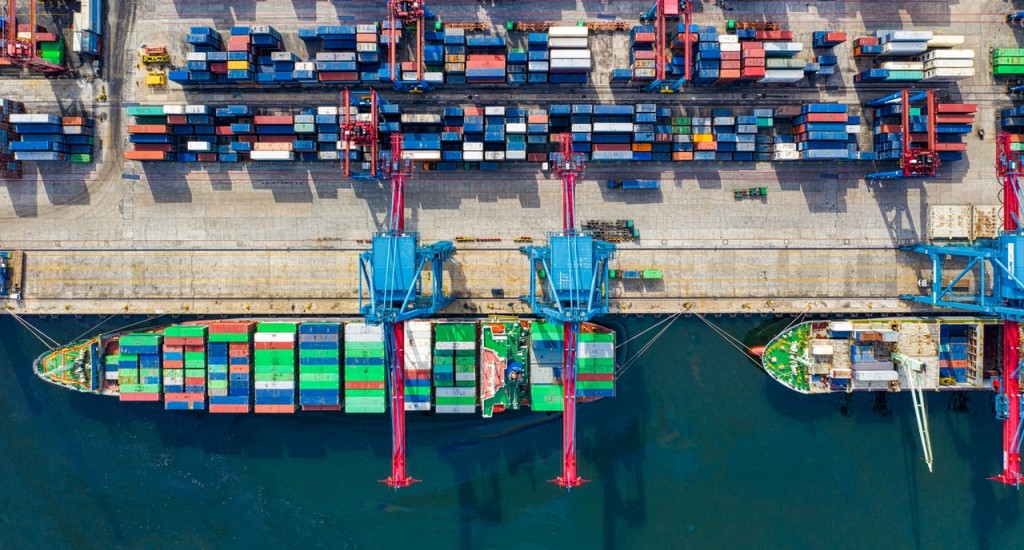When you think about automation and data analytics, the maritime industry might not be the first thing that comes to your mind. But this doesn’t stop researchers and data scientists from seeking new technologies that can improve the marine sector and turn it into a more sustainable business.
The maritime industry, specifically the shipping industry, is responsible for a significant portion of carbon dioxide emissions. This happening affects the planet and contributes to the global climate change that the world is experiencing today.
However, maritime businesses also play a major role in keeping the supply chain of the world running. Goods like food, oil, and different kinds of products are being shipped, across countries, every day by the sea. Thus, the maritime industry is one of the main drivers of economies—despite its adverse effects on the earth’s ecosystem.
And as we venture into the future of work, the landscapes of the maritime industry are gradually picking up their pace—probably out of necessity and partly, due to its environmental impact as well.
The industry is now applying data analytics, AI automation, and the Internet of Things (IoT) into its shipments, tools, and processes to accommodate the shifting tides in technology.
As this age-old industry keeps up with the modern world, it brings a lot of fresh ideas from ports to the trade table. Below are some of the relevant technological breakthroughs of the maritime industry that you might be interested in.
Launching automated ships through artificial intelligence and the Internet of Things
Almost everything in people’s homes became smarter through time. First, there were smartphones. Then, one by one, each appliance developed and can now function independently with just a click. But if you compare all of these to a smart ship, these are all old news. If self-driving cars are now a reality, why can’t ships be?
The future’s looking bright in the maritime industry as ships start to get more advanced in terms of technology and capabilities. Imagine, from sailing and steamships to automated ships! This development is bringing the maritime industry to its optimum efficiency and productivity.
Moreover, the main challenges that marine officers face while on sea duty can now be addressed. Homesickness and the lack of time to spend with their loved ones will become more manageable since ships can now operate remotely.
Through the Internet of Things, objects—small or big—can be controlled with applications and remote. IoT can reduce the need for tedious human presence in hydraulics, bays, and other parts and processes of the ship. Loading and unloading operations are also done automatically, without an actual officer onsite.
As artificial intelligence and IoT gear to be the future captains of ships, human errors are minimized and replaced by strategic, data-driven functions. The automated smart ship can now perform major shipping tasks like accurate control of propulsion systems and diesel engines—with its built-in vessel performance and weather monitoring.
This redirection of the maritime industry into tech and AI will cause a new shift in the way marine education institutions approach crew training. Sea manuals and qualifications also need to be updated—to ensure that officers can go with the flow of these new tides of technology.
Digital optimization of cargo shipments
Ships are gigantic modes of transportation. However, they are often used for freight functions to ship essential products from one port to another every day. With manual coordination, items inside the ship are arranged on a first-come, first-in basis or even randomly. However, this increases the possibility of error in the arrangement of cargos inside the vessel.
High-priority goods might get mixed up into the far-end of the ship. As a consequence, delays in shipments occur. Building on this problem, the digitization of cargo classification is one of the most innovative technologies that the maritime industry has nowadays.
Ports will not only serve as vessel stations. Now, they are optimized to properly distribute packages and goods on time through digital databases. In a matter of minutes, a ship’s cargo load is already arranged, maximizing the space that container ships have to depend on the urgency, efficiency, and ship size.
By streamlining port processes digitally, businesses can save a lot of time and money. Small-to-medium enterprises can work with fewer worries, knowing that the shipping of goods will come on time.
Building new route management systems
Sea routes have been set in default for a long time. It is only with recent technologies that these pathways are getting remodeled. By rigorous research on trends in weather and sea levels (among other aspects), mapping the fastest way can now be done through improved route management systems.
From purchasing ocean weather buoys, the advancement of sea technologies in predicting often unforeseeable ocean factors and conditions has come a long way. Think of this development as the Waze of vessels—with notifications for weather changes, traffic, and even piracy alerts! Real-time data powered by computational databases are the future of ship officers so, navigating the sea can be safer soon.
Big data helps in improving maritime data accuracy
If there’s one thing that serves as an anchor of the maritime industry—it is accuracy. With the amount of information stored in cloud systems nowadays, the sector can take wide leaps through insights from the ever-changing sea conditions, state of seafarers, container trends, and more.
Data analysts can provide accurate information and correlations from these insights. It helps improve the maritime industry and kickstart innovations in shipping and seafaring.
Big data can consolidate all of the much-needed details of ship management and maneuvering to form integrated control systems. Real-time data was also incorporated in these systems and smart technologies, making it easier for shipping officers to monitor the end-to-end aspects of the ship even without being there physically.
Training new maritime officers with tech
There’s nothing better than to equip the next generation of marine officers with the high-caliber skills of a modern-day seafarer. Introducing them to the works of the maritime industry through technologies like augmented reality (AR) can prepare them to adapt to the rapidly evolving processes of the sector.
Although it can be costly for institutes to initially invest in AR equipment, the rewards they can get from producing qualified and adaptive sea officers can outweigh these costs. Providing students with actual marine experience even before boarding on a crew training, gives them a beneficial edge to excel in seafaring.
Aside from AR, teaching marine students about offshore technologies can help them rise above the ranks for their future career endeavors. People might get surprised about how overlooked maritime management is in the industry, and being able to hone students who can perform well onboard and offshore through new technologies is a wondrous feat.
Knowledge of database management, maritime and shipping data analysis, and human resource enterprise systems are the sought-after skills of a modern-day seafarer—skills that maritime institutions also need to focus on to aid the scarcity of qualified seafarers.
In conclusion,
Smart technology sails the maritime industry to modern-day success. Technology makes the maritime industry more reliable—given that it functions on the unpredictability of oceans and seas. With vessels sailing on these sea pathways for months to even a year, being able to navigate more efficiently—even with the waves of unpredictability—is already one step closer to improving the overall sea experience of deck officers and passengers on board.


